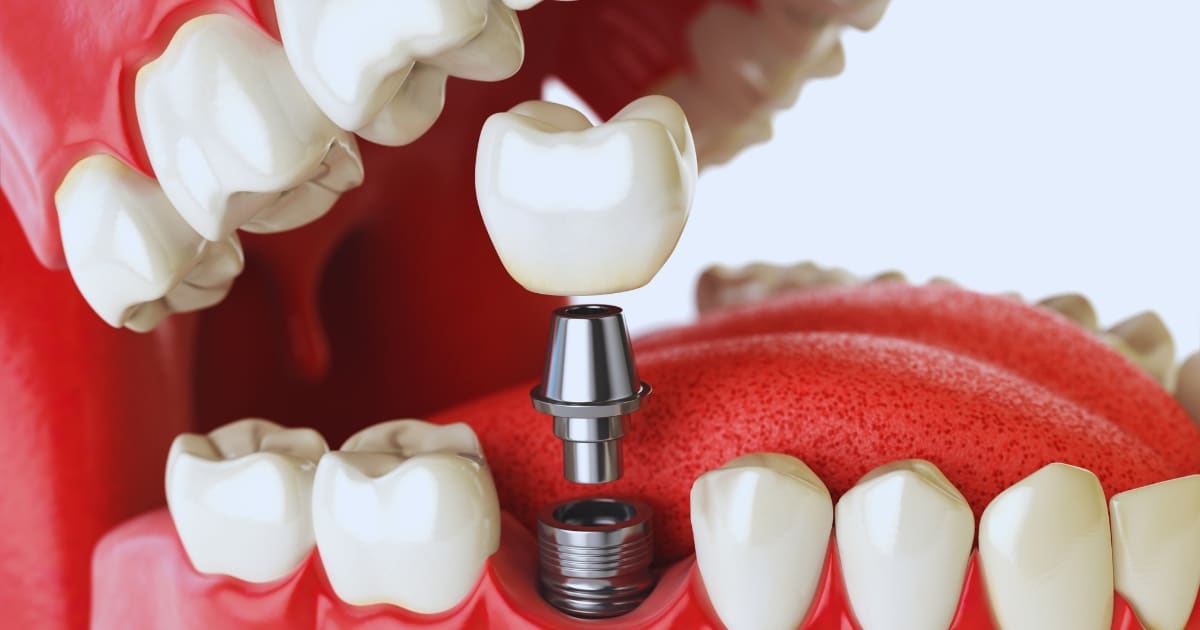Published on December 17, 2024

Losing a tooth can feel like a setback, but it’s something many people experience.
The big question is, how long can you wait before replacing it?
While it might seem convenient to delay getting a dental implant, the truth is that waiting too long can lead to a host of problems. If you’ve lost a tooth, time is crucial—delaying treatment could lead to long-term complications that make the process harder and more costly.
In this blog, we’ll explore what happens when you wait too long to get dental implants after losing a tooth. From jawbone health to the impact on surrounding teeth and your overall quality of life, we’ll walk you through why acting quickly is vital.
Let’s dive in!
The Impact on Jawbone Health
When you lose a tooth, the jawbone that once supported it starts to deteriorate. This happens because the stimulation provided by the tooth’s root is no longer there, leading to bone resorption. The longer you wait to get a dental implant, the more bone mass you lose.
- Bone resorption occurs quickly after tooth loss.
- Waiting too long can result in significant bone loss, affecting the implant’s success.
- A healthy jawbone is essential for securely anchoring a dental implant.
- Bone loss can sometimes require bone grafting procedures to rebuild the area, delaying your treatment and increasing costs.
Acting fast ensures that your jawbone stays strong and your implant has a solid foundation.
Increased Risk of Adjacent Teeth Shifting
Tooth loss doesn’t only affect the empty space. The surrounding teeth begin to shift towards the gap, which can lead to misalignment. The longer you wait for an implant, the more difficult it can be to realign those teeth later.
- Missing teeth cause surrounding teeth to tilt or drift out of place.
- Shifting teeth complicates the implant placement and overall alignment.
- Delayed treatment may require additional orthodontic procedures to straighten adjacent teeth.
- Early intervention prevents misalignment and ensures a smoother implant process.
Addressing the tooth loss early prevents these shifts and helps maintain the integrity of your smile.
Compromised Aesthetic Results
Time plays a significant role in the final appearance of your implant. Waiting too long can lead to changes in your smile or facial structure, making it harder to achieve a natural look.
- Bone resorption and shifting teeth affect facial appearance.
- Delayed implants may require adjustments to match the shape and size of surrounding teeth.
- Waiting too long can alter your smile and facial symmetry, making implants look less natural.
- Early implants help maintain the aesthetic balance of your teeth and face.
Choosing to act promptly ensures your dental implant blends seamlessly with your natural smile.
Prolonged Chewing and Speech Problems
The loss of a tooth impacts your ability to chew and speak properly. The longer you delay getting a dental implant, the more complicated these issues can become.
- Missing teeth affect chewing efficiency and can lead to digestive issues.
- Speaking may become difficult, affecting your clarity and confidence.
- Delaying implants may result in the need for more complex treatments to restore function.
- Early implant placement restores your ability to chew and speak without discomfort.
By addressing the tooth loss quickly, you improve both function and comfort, reducing long-term complications.
More Complex and Expensive Treatment
Delaying dental implant treatment doesn’t just complicate the procedure; it also increases costs. The longer you wait, the more procedures you may need to make the implant possible.
- Bone grafts, sinus lifts, or other surgeries may be required to prepare the area.
- These additional procedures increase both time and cost.
- Waiting too long can result in a more complex and invasive treatment plan.
- Early implant placement typically involves fewer steps and a quicker recovery.
To avoid unnecessary expenses and lengthy treatment, it’s best to act swiftly after tooth loss.
So it’s safe to say you now know what happens if you wait too long for dental implants. From jawbone loss to misaligned teeth and increased costs, delaying treatment complicates the process. By acting sooner, you ensure a smoother procedure and better results. Don’t let time work against you – prioritize your oral health today and achieve the smile you deserve.
